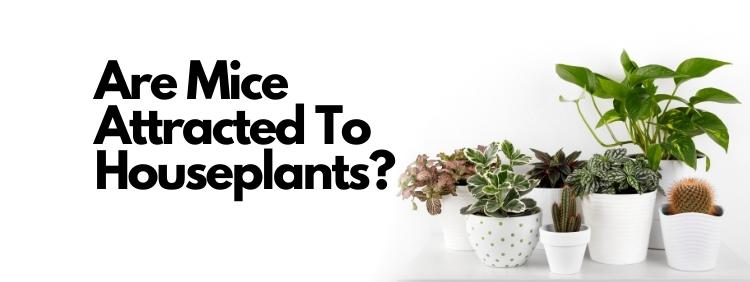Toronto Pest Control: Are Mice Attracted To Houseplants?

If you have an infestation of mice, they may cause a lot of destruction in and around your home. Mice are always looking for food and possible shelter, and in the process of trying to find them, they may damage houseplants. This is not the most likely scenario, but if you see damage to your houseplants that you cannot explain, you may need to call for mice removal services.
Why Might a Mouse Be Attracted to Houseplants?
Mice are omnivores and opportunistic feeders, so it is possible that they could eat your houseplants. However, a mouse would generally feed on a houseplant as a last resort. Mice probably wouldn’t feed on houseplants if there were other sources of food available. An exception might be in the case of new growth as mice may be more inclined to eat young shoots that are more tender than the full-grown plants.
If a mouse disturbs a potted plant, it is more likely because it is burying food that it has foraged in the dirt of the pot. If the pot is large enough, a mouse may also dig under the dirt to make a nest.
What Kind of Damage Can Mice Do to Houseplants?
If mice nibble on houseplants, you may see bite marks on the leaves and stems. This is not very likely if the plant is fully grown but it is possible, especially if the mice cannot find anything else to eat. If a mouse is chewing on a young shoot, which is more likely, it may show damage or possibly be missing completely.
Mice are more likely to bury food in the loose soil of the houseplant. If this is occurring, you may notice that the soil in the pot has been disturbed. You may notice small holes in the pot, and some of the soil may become displaced from the pot and spill over onto whatever the potted plant is sitting on, whether that be a table or the floor.
By digging around the pot, mice may disrupt or damage the roots of a plant. This can cause trauma from which it may not be able to recover. The roots of many houseplants grow clustered together in a shape that roughly resembles a ball. This root structure may look like shelter to a mouse, which may try to dig inside it to build a nest. The resulting damage may kill the plant. If a mouse digs around the roots of the plant enough, the plant may become uprooted. Even if not uprooted, it could still die from damage to its roots by the mouse.
Are Mice More Attracted to Some Houseplants Than Others?
Generally speaking, mice are indifferent to houseplants. If a mouse thinks that a houseplant may be useful to it, it may show some interest. Otherwise, the mouse is likely to ignore the plant. There are some houseplants that mice do not like because of their strong smell. These include rosemary, lavender, and peppermint. By growing some of these in or around your home, you may be able to keep mice out of your houseplants, but they may not be effective at repelling mice from your home.
Similarly, there are houseplants that are toxic to mice. They don’t repel mice, so planting them won’t keep the rodents out of your home, nor do they do anything with regard to rodent control in Toronto. Instinct tells the mice that the plants aren’t toxic, and the mice won’t eat them.
Mice do not like wet soil, so if you have succulents as houseplants that don’t tolerate frequent watering, mice may be more likely to disturb these plants.
What Can You Do To Keep Mice Out of Your Houseplants?
The best way to protect your houseplants from mice is to keep the rodents out of your home in the first place. Call Truly Nolen for pest control in Toronto.